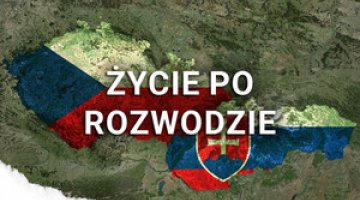The Czech-Chinese dispute over Huawei and ZTE
For several weeks there has been a public debate in the Czech Republic on possible threats to national security posed by the manufacturers of Chinese telecommunications equipment. Discussion on this subject was initiated by the National Cyber and Information Security Agency (NÚKIB), which on 17 December issued a formal warning against the use of equipment and software produced by the Chinese companies Huawei and ZTE. The Agency emphasised that in particular introducing them to essential systems may pose a threat to the state, mainly due to the political and legal order prevailing in China. According to Chinese law (from June 2018), companies and citizens from the People’s Republic of China (PRC) are obliged to cooperate with the Chinese special services. Meanwhile, all of the allegations have been denied by the Czech branch of Huawei, which has demanded that the evidence be presented; it has also been supported by the Czech President Miloš Zeman. He dismissed the Agency’s warning, referring to the declaration by the head of the corresponding office in Germany, who denied there was any evidence of Huawei’s involvement in espionage. The president also accused the Agency of wishing to attract attention to itself, and of its own possible links with competitors to the Chinese company.
In response to the warning from NÚKIB, on 21 December Prime Minister Andrej Babiš (ANO) held an extraordinary meeting of the National Security Council (in which the prime minister and the heads of eight ministries participate). After the meeting, the Council issued a statement in which it stressed that the warning only applied to critical infrastructure and other important systems in the Czech Republic, and will not affect ordinary users of Huawei and ZTE equipment. Two days later Babiš received the Chinese ambassador in private (at the ambassador’s request). After the meeting, the PRC Embassy issued a statement in which it condemned the NÚKIB’s warning as untrue and damaging. At the same time the Chinese side stated that it “acknowledges the efforts by the Czech government to repair its mistakes, and believes that the Czech Republic will take measures to avoid similar situations, and will effectively protect the legitimate rights and interests of Chinese companies.” The statement from the Chinese embassy was sharply criticised by the prime minister, accusing the Chinese ambassador of lying, and rejecting his claim that the Czech Republic had committed any error by the NÚKIB issuing its warning.
On 7 January, the government discussed in confidence the NÚKIB’s guidelines for its December warning as addressed to the administrators and operators of critical infrastructure, key systems and key services. In practice this refers to around 160 entities, including offices and companies (including private businesses) which are essential to the functioning of the state (including power plants, water supply and telecommunications companies). Under the law on cybersecurity, in response to the warning issued by the NÚKIB, these entities are obliged to carry out an analysis of the risk to security if Huawei or ZTE products are present in their systems. After identifying and analysing the potential risks, these bodies must take ‘appropriate action’. According to the NÚKIB’s guidelines, these may include the gradual removal of the Chinese-made elements of their infrastructure, changing their rules for cooperation with technology providers, but also retaining Huawei or ZTE products in their infrastructures if the risk analyses demonstrate that it is justified to do so.
Czech law does not specify when the entities are obliged to complete their analyses of the potential risks and take steps to limit them. At the same time, the law on cybersecurity allows for the imposition of fines of up to the equivalent of 5 million Czech crowns (c. €195,000) in cases of negligence in this regard. In the Czech Republic Huawei technologies are used, among others, by the Ministry of the Interior, the Police Headquarters and the State Office for Nuclear Safety, as well as ČEZ, the largest Czech energy company. Huawei also has a contract with the administration of Prague Castle, subordinate to the President’s Office, which manages the head of state’s residential property. Since 2014 Huawei has given the administration free products in exchange for the use of the Castle’s venues for public relations purposes.
In recent years, the threat posed by China’s intelligence services has been repeatedly emphasised by the Czech civilian counter-intelligence service (BIS), and a warning about the potential connection between products made by Huawei and ZTE and China’s espionage activities had already appeared in the BIS report for 2013. In its latest public report, the BIS noted a significant intensification of Chinese espionage activities in 2017, and found that Chinese intelligence and Chinese companies posed an “extremely high” threat to Czech citizens. According to Czech counterintelligence, China is willing to use much of its almost unlimited capital to gain access to strategic sectors, including telecommunications.
China is the largest provider of infrastructure for mobile operators in the Czech Republic (from transmitters to control computers), but their products are little used in the LTE cellular network, which is almost entirely based on Nokia technologies. On the other hand, in the smartphones segment Huawei controls over a fifth of the Czech market, as the largest single company (ZTE is fifth). Huawei employs around 330 people in the Czech Republic, of which nearly 30% are Chinese, further fuelling speculation that they are engaged in espionage activities. Huawei has also signed agreements on cooperation in research and development, with the technical university in Liberec among others.
Commentary
- For the last few years there has been a debate in the Czech Republic about its relationship with China and the development of economic cooperation between the two countries. The warnings from the BIS and the NÚKIB about Chinese threats, in the form of public warnings about the products made by specific companies, are a consequence of the fact that President Zeman (among others) has publicly downplayed the idea of any threat coming from China and has lobbied for further cooperation with Beijing. The stronger this lobbying is, the more liberal elites and institutions such as the BIS and the NÚKIB feel compelled to sound the alarm in public. Since 2014 Zeman visited China four times together with numerous economic missions. The biggest beneficiary of this policy has been Petr Kellner, the richest man in the Czech Republic, whom Zeman helped gain access to the Chinese market for consumer loans. At present, up to 55% of the value of loans made by Home Credit, a company controlled by Kellner, come from the Chinese market. President Zeman believes that the warnings from the BIS and the NÚKIB have “seriously affected the economic interests of the Czech Republic”, because Czech companies operating in China may become the target of Chinese retaliation. According to the head of state, this primarily concerns Škoda Auto (for which China is the largest market, and where it plans to make investments) and the above-mentioned Home Credit. In addition to the president, China has also won support from other politicians, mainly from the Czech Social Democratic Party (ČSSD), a partner in the ruling coalition.
- The Czech-Chinese dispute over the NÚKIB’s warning is the first serious test of the actual attitude that the government of Andrej Babiš has towards the cooperation with China. The Czech Prime Minister has repeatedly drawn attention to the lack of transparency in Chinese investments, as well as the minimal benefits for the Czech economy resulting from them. At the same time, however, most likely for the sake of the tactical alliance which links him with President Zeman, Babiš has taken care to maintain good relations with Beijing, although he has not personally become involved in developing them. The tension between Babiš and the Chinese ambassador over the NÚKIB’s warning has clearly revealed the difference between the approach to China presented by the Czech Prime Minister and the near-criticism-free approach of President Zeman and the previous government of Prime Minister Bohuslav Sobotka (ČSSD). After Babiš came to power, the main annual gala supporting Czech-Chinese business contacts, the China Investment Forum, took place for the first time without the prime minister’s participation or patronage (although several individual ministers did attend).
- In its first reaction to the warning, the Czech government, apparently surprised by the decision taken by a public institution which is not subject to it, stressed on the one hand that it took the NÚKIB’s warning very seriously, while on the other hand pointing out that in any case it does not apply to the Chinese companies’ ordinary customers. This statement was a gesture towards China and Huawei, although it simultaneously contradicts the NÚKIB’s position, which has noted that its warning is addressed to all users of computer networks, though only some of them are subject to statutory obligations.
- From the statements of the NÚKIB’s chief, it appears that the warning it issued was prepared largely in connection with the planned investments in 5G network technology and the ongoing computerisation of public administration in the Czech Republic. The guidelines published by the government emphasised that, in accordance with the law on cybersecurity, public and private entities managing critical infrastructure, key systems and service operators are obliged to take security issues into account when choosing a technology provider. This calls Huawei’s planned investments in the Czech Republic into question. According to the agreement concluded in spring 2017 between the Chinese company and the state agency CzechInvest, the investment value of the Chinese company in the Czech Republic would over 5 years amount to US$360 million, leading to the creation of 4000 jobs. Huawei’s plans include developing a 5G mobile network in the Czech Republic in cooperation with the PPF investment company controlled by Petr Kellner, who owns telecommunications companies in several Central European countries. In the Czech Republic, among others Kellner controls the O2 mobile network and the CETIN company, which owns a dense network of infrastructure (Kellner’s business position is evidenced by the fact that his assets exceed the total property of the seven richest people in neighbouring Poland).
- The expansion of Huawei in Europe and around the world has both a commercial and a political dimension, and is therefore meeting with increasing resistance among its foreign partners. Huawei’s priority now is to become the leader on the telecommunications equipment market, including the 5G network which will form the basis for the so-called ‘internet of things’ (IoT). Companies and countries that manage to build up a scale effect and impose their own standards and models of 5G will gain a significant technological and commercial advantage in the coming decades. Huawei is also developing dynamically in the lucrative sector of consumer electronics, primarily mobile telephony. In the context of the strong ties between the Chinese state and Huawei, as well as the act of 2018 which obliges citizens and businesses in the PRC to assist the intelligence services, the company’s strong position in both fields opens up the possibility of it gaining access to critical infrastructure abroad, as well as intelligence and surveillance activities.
- Just as in the Czech Republic, concerns about the safety of Chinese technology (Huawei and ZTE) have been raised by the US and other developed countries, as well as the largest global telecommunications companies, for example Orange and Deutsche Telekom. The recent arrest in Canada of Huawei’s financial director Meng Wanzhou (the daughter of the company’s founder Ren Zhengfei), made at the request of the United States in connection with allegations that Huawei violated sanctions against Iran, met with an aggressive response from Beijing. Over the next few weeks, the Chinese authorities arrested perhaps as many as 13 Canadian citizens. It is possible that the NÚKIB’s decision to issue a public warning was also a consequence of the receipt of classified information from the US; the Agency confirmed that its warning was also based on information from foreign intelligence services. This aspect has been emphasised by the Chinese media, suggesting that Prague’s actions were at least partially inspired by the USA, and that it thus constituted part of a worldwide attack on Huawei, which has been shut out of the markets of certain US allies (including Japan and Australia).
- Beijing’s complaint about Washington’s protectionist measures is unjustified, and reducing the dynamics of the development of 5G networks to the US-China dispute is far too simplistic a move. Most patents (standard-essential patents, or SEPs) related to 5G are not held by either Chinese (Huawei, 14.77%) or US companies (Qualcomm, 14.82%; Intel, 11.13%), but by companies from South Korea (Samsung, 28.53%; LG, 1.27%). Sweden’s Ericsson (16.83%) and Japan’s Sharp (11.41%) also have strong positions. It is primarily the Korean and European manufacturers which will impose their standards in the work of the European Telecommunications Standards Institute (ETSI). Due to the size and importance of the European market, in practice it is the ETSI which will develop global 5G standards. Nevertheless, irrespective of who provides the technology to the national networks, the companies which own the individual patents – including companies from China – will receive the profits they are due.





